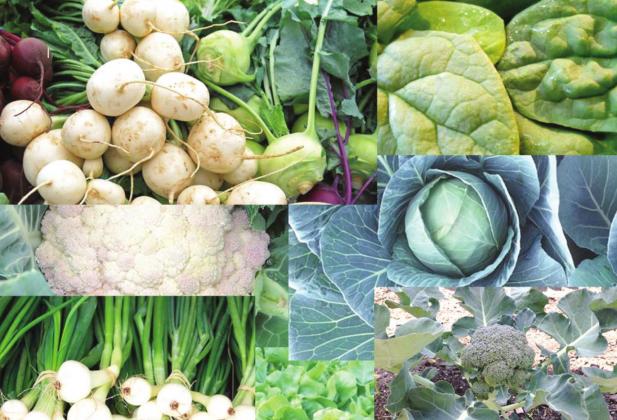How well will things grow during this time of the year? Last month we discussed what grows best in November. Here’s what we’re preparing to plant in our gardens this December.
Your selection for vegetables is wide, including beets, cabbages, cauliflower, chines cabbage, broccoli, Brussels sprouts, radish, Swiss chard, turnips, bunching onions, potatoes, peas, kales, lettuce, mustard, kohlrabi, carrots, celery, spinach, arugula, and collards.
Some of the bedding plants you could consider planting alongside the vegetables are petunia, lobelia, pansy, lobelia, alyssum, and snapdragon; also, viola adds color in winter. Some of the bulb plants include amaryllis that blooms both in winter and summer. Central Florida gardeners have a wide selection of bulbous plants capable of thriving and producing beautiful flowers this December. They include begonia, cannas, crinum, dahlia, rainlily, gladiolus, caladiums, and African lily. You might also be interested in planting herbs in your December garden, so consider these coolweather herbs like parsley, sage, garlic, cilantro, sage, dill, thyme and fennel, sweet basil, smallage, hops, lovage, ginseng, sarsaparilla, and sassafrass.
Consider planting poinsettia, a popular indoor holiday plant that blooms and is colorful for weeks if properly taken care. The showy and colorful flower is a collection of modified leaves referred to as bracts; the plant’s true flowers are small and gathered in the middle of its bracts. Do not let cold damage your crops and learn how to handle the cold-damaged plants. You can use subtropical plants in your landscape, but you must protect and replace them as required.
For your vegetable garden, ensure that you are not over-spacing or underspacing; instead, maintain proper spacing for your transplants and seeds for the proper development and growth of vegetables and tubers. Always remember to protect your indoor plants from pests by carrying out regular inspections of such suspected pests. Ensure you are supplying enough sunlight for the indoor plants to thrive. Be keen on the performance of the plants, and to ensure you are working with the right soil qualities; perform a soil test.
Suppose your plants are not performing as expected and you are planning for new plantings. Do not waste the falling leaves, as you could use them to make compost mulch by supplying the essential carbon ingredients for good mulch. Finally, keep checking on the garden pests as they will continue to return now and then; consider treating them as may be required. Though the cool temperatures of December might promise fewer pests, some will increase; so be watchful.
Email epabon5@ufl.edu or can contact the Plant Clinic at 321-697-3000 for a free phone consultation. Master Gardeners are available to help you with your garden questions.



